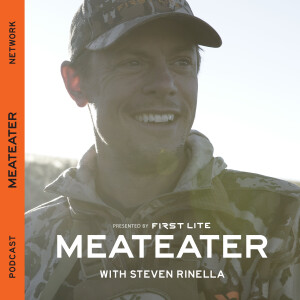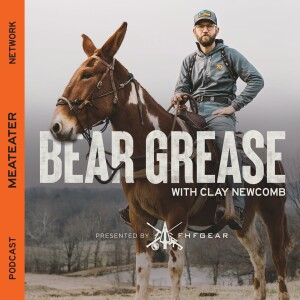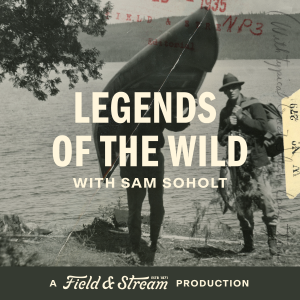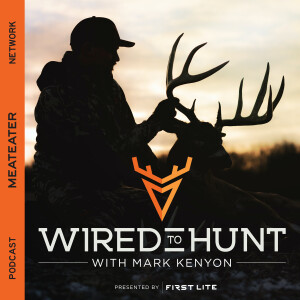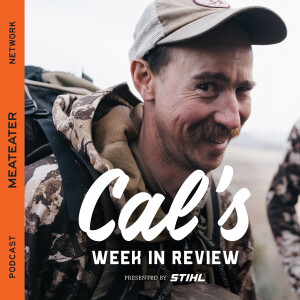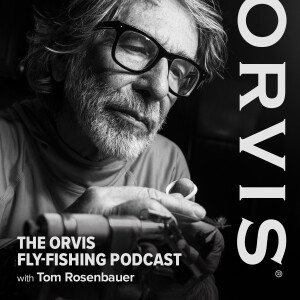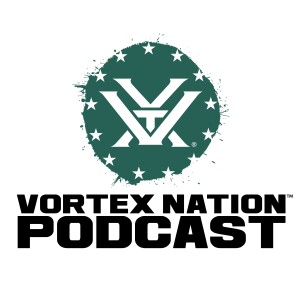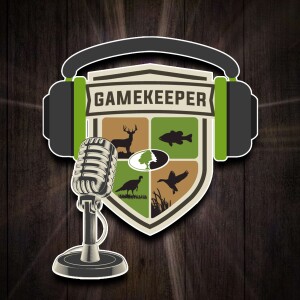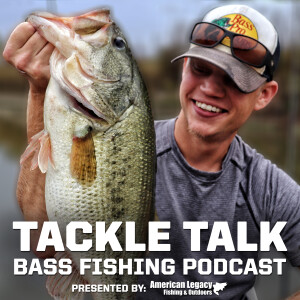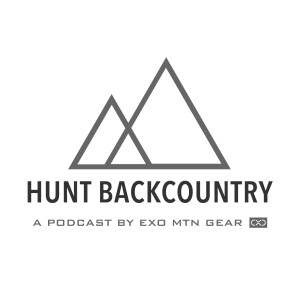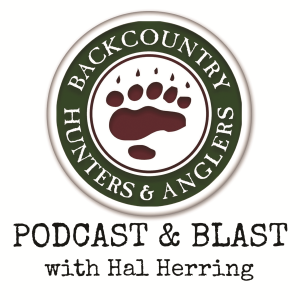

Backcountry Hunters & Anglers Podcast & Blast with Hal Herring
https://backcountryhunters.libsyn.com/rssEpisode List
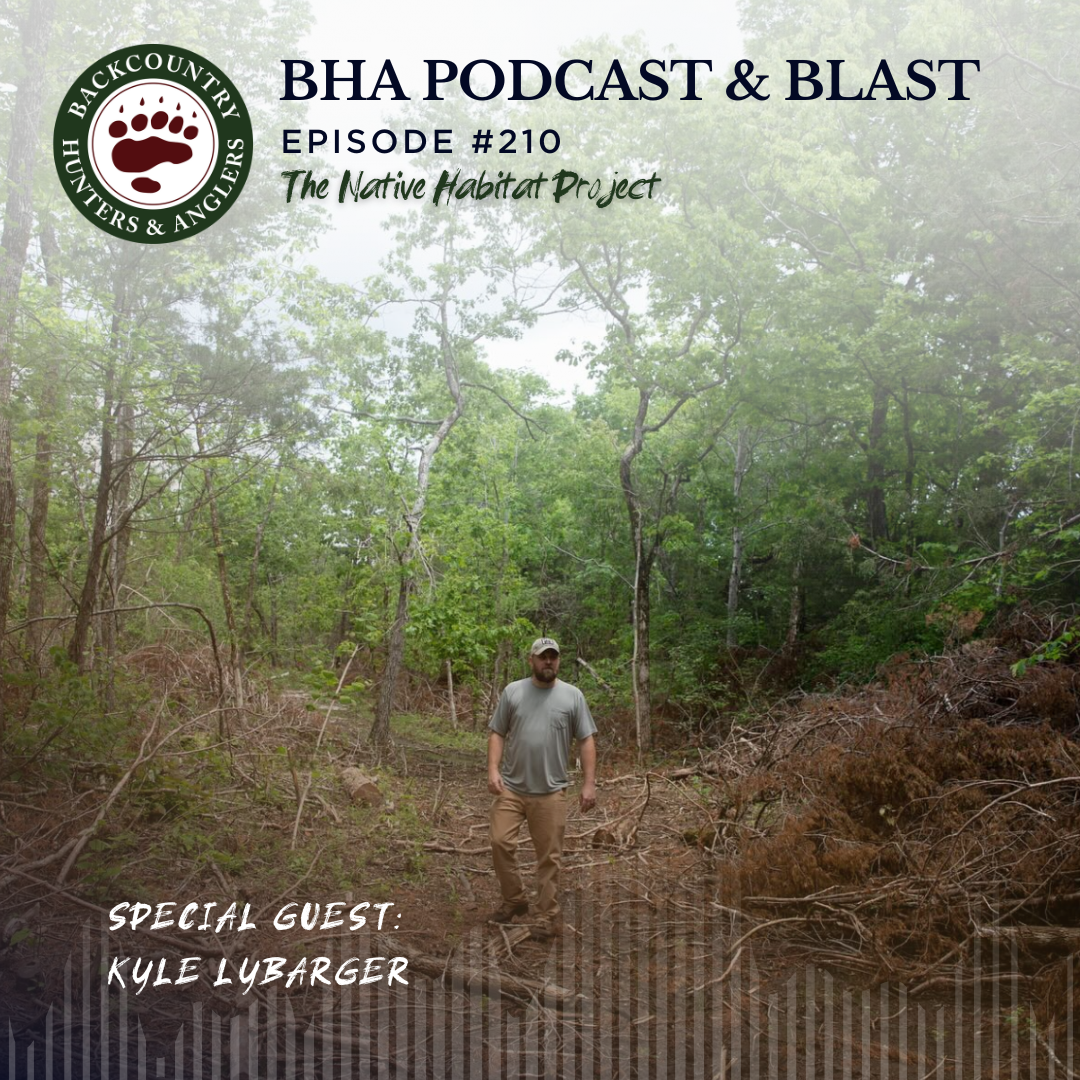
The Native Habitat Project with Kyle Lybarger
Kyle Lybarger, a native of Hartselle, Alabama, is a botanist and restoration ecologist and the founder of the Native Habitat Project. He’s also a father, a conservationist, a lifelong whitetail and turkey hunter, sauger and bass fisherman. Kyle is a man on a mission: to save or restore as much of the South’s native plants, grasslands, savannahs, limestone glades and open woodlands as he possibly can, and to start a movement of motivated Southerners to do the same, anywhere possible and on any scale, from a tiny corner in a suburban front yard or replacing the sterile turf around a new factory, to reintroducing controlled burns to thousands of acres. He’s racing against time, indifference and outright opposition, working tirelessly as a sprawling development boom overwhelms one of the most biodiverse and rare ecosystems in the world, demolishing not only the wildlife and plants but the history of Native peoples and a whole Southern culture built upon a relationship with wildlife, land, and water. Follow Kyle’s highly informative and brilliant Instagram account: https://www.instagram.com/nativehabitatproject/ and enjoy this interview, recorded at Hal’s homeplace in Alabama, after some adventures identifying rare plants, and a 14 hour day with a controlled burn that got a little, well, over enthusiastic. The Podcast & Blast with Hal Herring is brought you by Backcountry Hunters & Anglers and presented by Silencer Central, with additional support from Decked, Dometic, and Filson. Join Backcountry Hunters & Anglers, the voice for your wild public lands, waters, and wildlife to be part of a passionate community of hunter-angler-conservationists. BHA. THE VOICE FOR OUR WILD PUBLIC LANDS, WATERS AND WILDLIFE. Follow us: Web: https://www.backcountryhunters.org Instagram: @backcountryhunters Facebook: @backcountryhunters
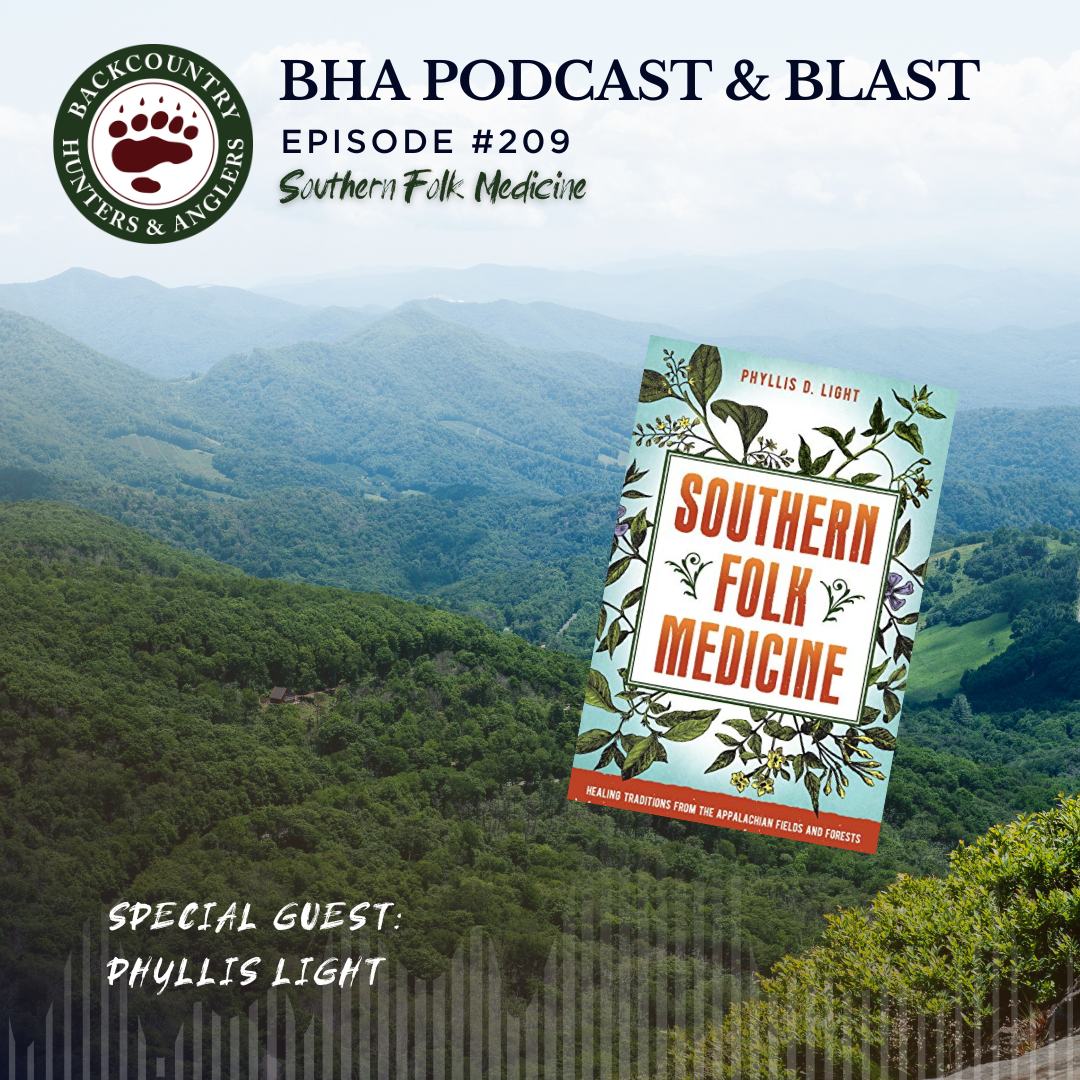
Southern Folk Medicine with Phyllis Light
Come with us to Arab, Alabama, to meet Phyllis Light, herbalist, responsible forager, native plant conservation advocate, founder of the Appalachian Center for Natural Health, and author of Southern Folk Medicine: Healing Traditions from the Appalachian Fields and Forests. Phyliss Light was born on Brindlee Mountain, in this southwest extension of the Appalachian Mountains, into a family with Creek and Cherokee Indian roots. She learned herbalism from her grandmother, and spent long days of her childhood “gleaning” – harvesting wild foods and medicines, fishing and hunting, with her father. “It was a very practical kind of herbalism,” Phyliss explains, “if it didn’t work, we didn’t use it. We didn’t have the money to go to the doctor unless it was something drastic.” As an adult she was an apprentice of the late Tommie Bass, the world-renowned healer known as “the Herb Doctor of Shinbone Ridge.” Although she has taught herbal medicine across the US, she has lived her whole life, and raised her family, on Brindlee Mountain. “There are over four thousand species of plants in this state,” she says, “and this is the place I know best-I’ve never needed to live anywhere else.” Her book, Traditional Southern Folk Medicine, combines her unmatched knowledge of native plant medicine with deeply researched history into how this uniquely American healing tradition evolved, and how it has never been more relevant or needed than it is today.
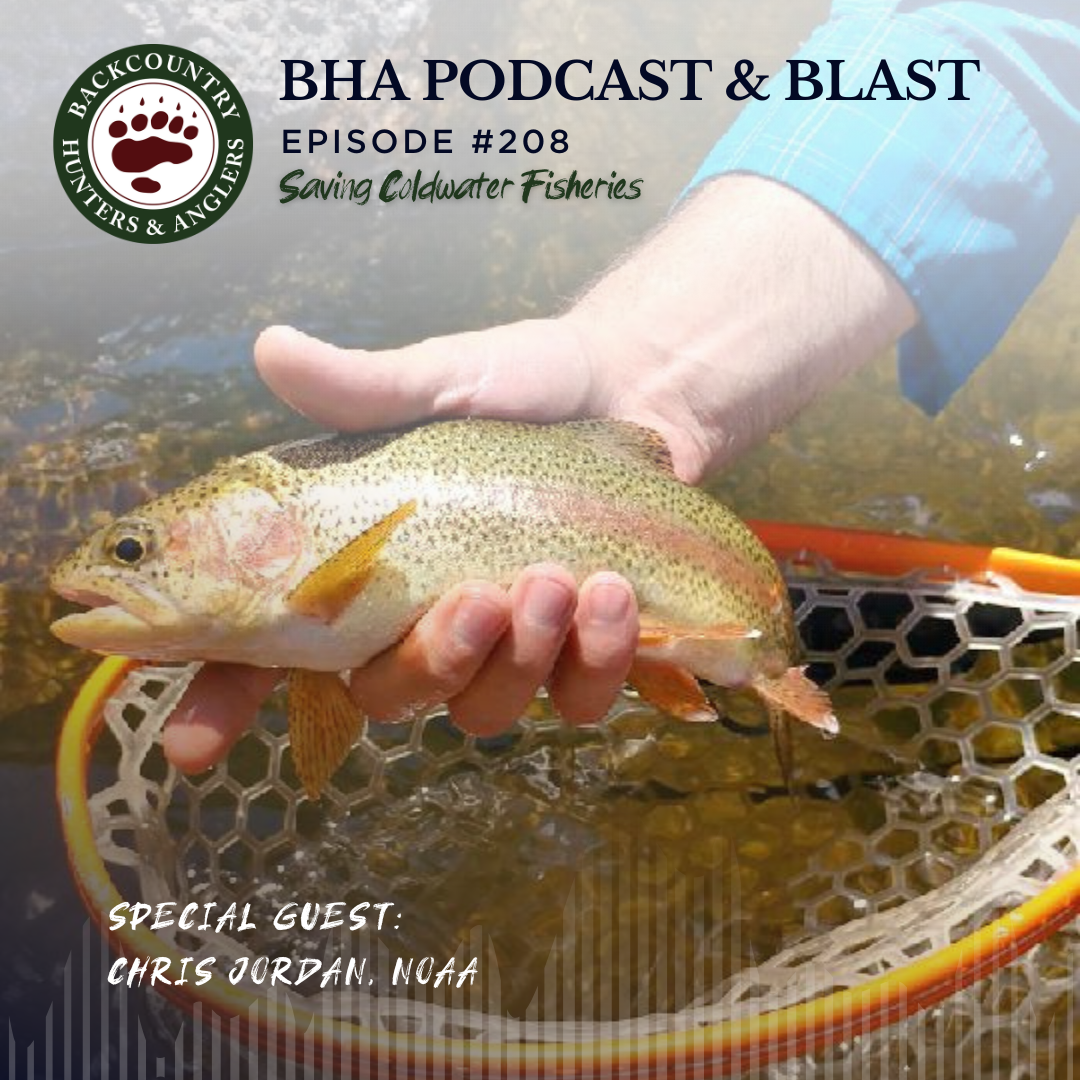
Saving Coldwater Fisheries with Chris Jordan, National Oceanic and Atmospheric Administration (NOAA), Northwest Fisheries Science Center
Chris Jordan has some unwelcome news for the watershed and fisheries restoration movement. Restoring robust populations of salmonids and other fish species in degraded rivers and wetlands is much more complex than we could have ever imagined, and we’ve been doing it wrong for decades. Most of us, even those of us who view our fishing and our rivers as a kind of religion, don’t even know what a truly healthy river looks like. But Chris also has some welcome news, though, and it’s the subject of today’s podcast: we know how to restore functioning watersheds for coldwater fisheries now, and it’s imminently achievable. Real watershed restoration that can last and bring back healthy cold water fisheries – it’s called “process-based restoration” – is the future. It’s not just about removing archaic dams and putting curves and woody debris back into broken and degraded creeks. It’s about beavers, muck and mire and willow thickets, floodplains and aquifers, wildfire and wetlands, gravity and shade. It is, as Chris has studied and implemented successfully for the past few decades, about “helping rivers do their jobs with a lighter hand and a larger scope” and recognizing that the messiest natural systems are the very best at producing the strongest and healthiest fisheries. Join us- 100% guaranteed, you’ll see your favorite rivers and creeks in an entirely new light. The Podcast & Blast with Hal Herring is brought you by Backcountry Hunters & Anglers and presented by Silencer Central, with additional support from Decked, Dometic, and Filson. Join Backcountry Hunters & Anglers, the voice for your wild public lands, waters, and wildlife to be part of a passionate community of hunter-angler-conservationists. BHA. THE VOICE FOR OUR WILD PUBLIC LANDS, WATERS AND WILDLIFE. Follow us: Web: https://www.backcountryhunters.org Instagram: @backcountryhunters Facebook: @backcountryhunters

Special Guest Ryan Callaghan: Public Lands Under Fire
The news keeps getting worse: over 250 million acres of our public lands potentially up for sale and 3 million or more likely carved out. While this has been a goal, and a dream, of many radical politicians for the past fifty years, until now it has only been whispered, dog-whistled, lied about, and obscured. Now, their plan is out in the open. The line is drawn in the sand. The gauntlet has been thrown down. The land grabbers have made their play. How will we respond? How do we, the Americans who know and love and depend upon these lands, stop this utterly shameless theft of our national assets? MeatEater Director of Conservation and Backcountry Hunters & Anglers North American Board Chair Ryan Callaghan joins Hal as they discuss what is happening, what’s at stake, and how we – all of us American patriots together -- are going to stop this vandalism and theft of the treasures of our nation. Listen. Learn. Then Take Action. And Fuel the Fight with our United We Stand for Public Lands campaign This episode is a special Dual Release with MeatEater for Cal's Week In Review. The Podcast & Blast with Hal Herring is brought you by Backcountry Hunters & Anglers and presented by Silencer Central, with additional support from Decked, Dometic, and Filson. Join Backcountry Hunters & Anglers, the voice for your wild public lands, waters, and wildlife to be part of a passionate community of hunter-angler-conservationists. BHA. THE VOICE FOR OUR WILD PUBLIC LANDS, WATERS AND WILDLIFE. Follow us: Web: https://www.backcountryhunters.org Instagram: @backcountryhunters Facebook: @backcountryhunters

Iowa: Agriculture and the Tallgrass Prairie
“At first the Euroamerican settlers could not fathom the tallgrass prairie. Stepping into it from cropland-speckled woodlands to the east, they entered a land of sky and horizon, wind and light, flower and scent, a surging sea of grasses that staggered the imagination. The prairie grasslands seemed to stretch on forever, a landscape that promised no enclosure, only intensity and exposure…” So writes Cornelia (Connie) Mutel in her book, The Emerald Horizon: The History of Nature in Iowa, a modern classic of natural history. Mutel has spent her life chronicling the fantastic and beleaguered landscape of her home state, and the place that she knows and loves like no other. Her life’s work- seven books written or edited, all on different aspects of Iowa’s natural history- could be viewed as a requiem: only 0.1% of the native tallgrass prairies remain in Iowa, over 97% of its’ once wildly biodiverse landscapes have been converted to human use, agricultural runoff and toxic spills have poisoned over half of the state’s waterways and thousands of its residents’ wells, the draining of wetlands causes massive, budget-breaking floods, topsoil loss is at crisis level. The current model of Iowa’s agriculture does not work for anyone, and there seems to be no political will to change it. But Connie Mutel, a writer steeped in the understanding of time, nature, and change, does not believe in requiems. We discuss her latest and perhaps most important work, Tending Iowa’s Land: Pathways to a Sustainable Future, where she brings together a diverse selection of expert voices from across Iowa, all focused on the very possible and very practical goal of fixing that which is broken, and restoring the miracle that is Iowa. --- The Podcast & Blast with Hal Herring is brought you by Backcountry Hunters & Anglers and presented by Silencer Central, with additional support from Decked, Dometic, and Filson. Join Backcountry Hunters & Anglers, the voice for your wild public lands, waters, and wildlife to be part of a passionate community of hunter-angler-conservationists. BHA. THE VOICE FOR OUR WILD PUBLIC LANDS, WATERS AND WILDLIFE. Follow us: Web: https://www.backcountryhunters.org Instagram: @backcountryhunters Facebook: @backcountryhunters
Create Your Podcast In Minutes
- Full-featured podcast site
- Unlimited storage and bandwidth
- Comprehensive podcast stats
- Distribute to Apple Podcasts, Spotify, and more
- Make money with your podcast
